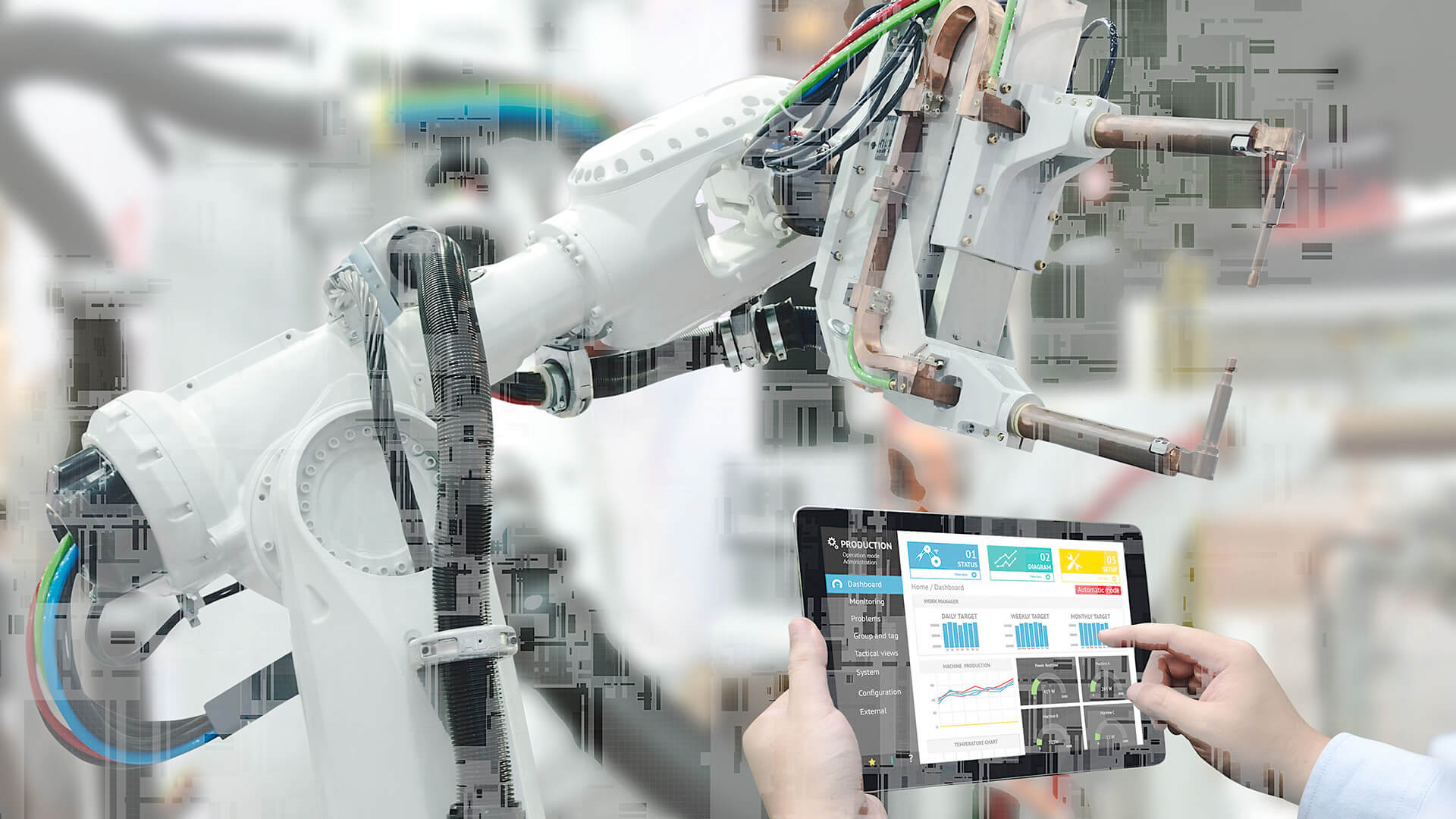
Understanding the Foundation Agent: NVIDIA’s AGI Aspiration
The Foundation Agent, as envisioned by NVIDIA, is a pioneering stride towards realizing AGI. Unlike conventional AI systems designed for specific tasks, AGI embodies a versatile and comprehensive intelligence capable of performing a wide array of tasks with human-like adaptability. Dr. Jim Fan’s vision through the Foundation Agent is to create an AI that not only excels in a single domain but can seamlessly navigate through a multitude of tasks, environments, and physical embodiments. This leap is not just a step forward in AI technology; it represents a paradigm shift in our approach to artificial intelligence, promising a future where AI can more closely mirror the depth and versatility of human intelligence.
The Evolution of AI through NVIDIA’s Lens
AlphaGo: The First Step in AI’s Game Mastery
AlphaGo’s victory in the ancient board game of Go was more than just a technological triumph; it was a watershed moment for AI. This achievement shattered the longstanding belief that such complex, intuitive games were beyond the reach of artificial intelligence. AlphaGo didn’t just play Go; it demonstrated strategic thinking and intuition, qualities once thought uniquely human. This breakthrough extended beyond the realms of gaming, suggesting vast potentials in areas requiring strategic decision-making, from business forecasting to medical diagnostics.
Voyager Project: Beyond Games into Skill Acquisition
With the Voyager project, NVIDIA steered AI into a realm of versatility and adaptability, key traits of human intelligence. Voyager’s ability to autonomously acquire and apply skills in the dynamic world of Minecraft was akin to a child learning through play and experimentation. Imagine an AI not just executing predefined tasks but also creatively solving problems and learning from its environment. This is not just an asset for gaming; it’s a prototype for AI systems in education, design, and even creative arts, where learning and adaptability are paramount.
Metamorph Initiative: Adapting AI to Diverse Embodiments
Metamorph represented a leap from digital to physical, showing that AI could transcend the screen and interact with the physical world. By controlling various robotic forms, Metamorph demonstrated the potential of AI to adapt to different physical tasks, whether it’s a robotic arm assembling intricate machinery or a drone navigating through complex terrain. This initiative brings us closer to a future where AI can assist in diverse fields, from automated manufacturing to precision agriculture, adapting its physical interactions to the task at hand.
Isaac Sim: Training AI in Photorealistic Simulations
Isaac Sim is where NVIDIA truly blurs the line between virtual and real. By training AI in environments that closely mimic the real world, Isaac Sim prepares AI for practical, real-world applications. This isn’t just about creating smarter robots; it’s about developing AI systems that can understand and interact with our world with unprecedented accuracy. The implications are immense: from training autonomous vehicles in simulated yet realistic urban settings to preparing AI for emergency response scenarios, Isaac Sim is setting the stage for AI systems that can understand and navigate our world with the finesse of human perception and decision-making.

Why Businesses Should Pay Attention
The advancements in AI represented by NVIDIA’s projects are not just academic milestones; they hold transformative implications for businesses across various sectors. Firstly, the automation potential of AI like the Foundation Agent is profound. It promises to streamline operations, reduce errors, and enhance efficiency, particularly in industries where precision and speed are crucial. Imagine AI systems managing complex logistics, optimizing supply chains in real-time, or providing personalized customer service experiences.
Moreover, the innovation in robotics, as seen in the Metamorph Initiative, opens up new horizons in manufacturing, healthcare, and service industries. Businesses can look forward to more flexible and adaptive automation solutions. For example, in healthcare, robotic systems could assist in surgeries or patient care with greater precision and adaptability, thanks to AI.
Finally, Isaac Sim’s advanced simulation capabilities offer cost-effective training and development solutions. Businesses can train AI systems in simulated environments, reducing risks and costs associated with real-world training. This technology could revolutionize fields like autonomous vehicle development, where safe, extensive, and varied training is critical.
In addition to the theoretical benefits of AI, let’s consider practical examples to illustrate its impact. Take, for instance, the retail industry. By integrating advanced AI systems like those developed by NVIDIA, retailers can optimize inventory management, predict consumer trends, and personalize customer experiences. For example, a clothing retailer could use AI to analyze sales data and social media trends, enabling them to stock items that are likely to be in high demand.
This proactive approach not only boosts sales but also enhances customer satisfaction. Another example can be seen in the logistics sector. Companies are already beginning to employ AI for route optimization, reducing delivery times and fuel consumption. This not only leads to cost savings but also contributes to sustainability efforts. These examples showcase how businesses, by adopting cutting-edge AI, can achieve significant gains in efficiency, customer satisfaction, and environmental responsibility.”
Addressing the Challenges: Complexity, Ethics, and Safety
While the promise of AGI is alluring, it comes with its own set of challenges. The complexity of developing AGI systems like NVIDIA’s Foundation Agent involves immense computational resources and sophisticated programming. This complexity might limit immediate widespread adoption, especially for smaller businesses with limited resources.
Ethical considerations are equally paramount. As AI systems become more autonomous and integrated into our daily lives, the need for robust ethical frameworks and guidelines becomes critical. This includes addressing biases in AI decision-making, ensuring privacy, and maintaining human oversight.
Safety is another crucial aspect. With AI systems performing more complex and autonomous tasks, ensuring their reliability and safety, especially in scenarios involving human interaction, is essential. Businesses must consider these factors when integrating advanced AI into their operations, ensuring they do not compromise on these crucial aspects in the pursuit of innovation.
To navigate the complexities and ethical challenges of advanced AI, businesses should consider establishing a dedicated AI ethics board. This board would be responsible for overseeing AI deployments, ensuring they adhere to ethical standards and regulatory requirements. For instance, in the realm of data privacy, the board could implement guidelines to anonymize user data processed by AI systems, safeguarding individual privacy.
Additionally, businesses can invest in safety protocols for AI systems, especially those interacting with humans. Regular audits and updates can be scheduled to ensure AI systems behave predictably and safely in various scenarios. By taking these proactive steps, businesses not only foster trust in their AI applications but also contribute to the broader conversation on responsible AI use.
These measures are not just a moral imperative; they are essential for building sustainable, long-term relationships with customers and stakeholders in an increasingly AI-driven world.

The Future is Now: AI’s Role in Modern Business Solutions
NVIDIA’s advancements in AI, particularly with the Foundation Agent, are not just a glimpse into the future; they are shaping the present. The scalability and versatility of these AI systems mean they can be tailored to a wide range of business needs. From small startups to large corporations, the adaptability of AI can lead to more personalized and efficient solutions. Imagine an AI system that not only assists in data analysis but also adapts to provide insights in marketing, customer relations, and even creative design.
The benefits of accelerated AI learning are particularly significant. With systems like Isaac Sim, AI can be trained much faster and more effectively, reducing the time and resources needed for deployment. This aspect is crucial for businesses in fast-paced industries where staying ahead of the curve is vital. Faster, more efficient training means quicker implementation, keeping businesses agile and competitive.
When considering the implementation of advanced AI solutions like NVIDIA’s Foundation Agent, businesses should start with a clear assessment of their needs and the specific problems they aim to solve with AI. It’s crucial to identify areas where AI can bring the most value, whether in improving operational efficiencies, enhancing customer experiences, or driving innovation.
For instance, a manufacturing company might leverage AI for predictive maintenance, using AI algorithms to anticipate equipment failures before they occur, thus reducing downtime and maintenance costs. In the retail sector, AI could be used to analyze customer data to personalize marketing strategies and improve inventory management. To ensure a successful implementation, businesses should also invest in training their workforce to work alongside AI systems, focusing on the development of complementary skills that maximize the benefits of AI-human collaboration.
Partnerships with AI technology providers can also be valuable, offering access to expertise and support as businesses navigate the integration process. By taking a strategic and well-planned approach to AI adoption, businesses can unlock the full potential of these technologies to drive growth and competitive advantage.
Uncharted Territory: Long-Term Memory and Real-World Application
One of the most intriguing aspects of NVIDIA’s AI development is the focus on long-term memory and real-world application. Long-term memory in AI allows for the accumulation of knowledge and experiences, making AI more adept over time. This capability can revolutionize industries like healthcare, where AI can accumulate vast amounts of medical data and research, improving diagnostic and treatment procedures with each interaction.
The translation of AI skills from simulated to real-world scenarios is equally critical. As AI systems like those trained in Isaac Sim move from controlled environments to real-world applications, their ability to adapt and perform in unpredictable scenarios will be the ultimate test. Success in this area could lead to AI systems capable of complex tasks like urban planning, environmental management, and crisis response, offering solutions that are both innovative and practically applicable in our everyday lives.
The potential of AI with long-term memory extends across various sectors, each with unique applications and benefits. In the financial industry, for example, AI can analyze years of market data to predict trends and provide investment insights, aiding decision-making in real-time trading scenarios. This capability could revolutionize financial advising, making it more data-driven and precise. In the realm of healthcare, AI with long-term memory could lead to more accurate patient diagnosis and treatment plans by analyzing extensive medical histories and research.
This approach could significantly improve patient outcomes, particularly in managing chronic diseases or complex medical conditions. Additionally, in the education sector, AI systems could personalize learning experiences by remembering individual student progress and adapting teaching methods accordingly. This personalized approach could enhance learning outcomes and address diverse educational needs. These examples highlight the transformative potential of AI with long-term memory in addressing complex, data-intensive challenges across industries, opening up new avenues for innovation and efficiency.

Integrating AGI into Today’s Technological Landscape
The integration of AGI into existing technological infrastructures presents a remarkable opportunity for innovation across various industries. NVIDIA’s Foundation Agent, with its adaptability and learning capabilities, is poised to complement and enhance current technologies. In the world of big data and analytics, AGI could provide deeper insights and predictions, transforming raw data into actionable intelligence. Imagine AI not just analyzing customer data but predicting market trends and customer behavior with unprecedented accuracy.
In sectors like renewable energy and environmental management, AGI could optimize resource allocation and management, leading to more sustainable practices. Its ability to process and analyze vast amounts of data can lead to more efficient energy usage and better environmental conservation strategies.
The potential for AGI in healthcare is particularly striking. With the ability to process and learn from vast medical databases, AGI could assist in personalized medicine, tailoring treatments to individual patients based on a comprehensive understanding of their medical history and current health status.
Integrating Advanced General Intelligence (AGI) into existing business technologies is an important step. The first thing to do is a compatibility check. This means looking at how AGI will work with the current software and hardware. It’s about finding out if any changes or upgrades are needed. For example, businesses that rely a lot on cloud-based services need to ensure AGI can work smoothly with these systems. This is crucial for managing data effectively.
In industries like retail or customer service, AGI can be a game-changer. It can be integrated with CRM systems to improve how customers are interacted with. AGI enables personalized suggestions and automated support. This can greatly enhance the customer experience.
It’s also essential for businesses to set up strong rules for using AGI. They should have clear policies about how data is used, kept private, and protected. This helps in keeping the trust of their customers. Training employees on how to use AGI is another important step. The training should cover the technical details and how AGI can aid in decision-making and boost creativity. By carefully planning how to integrate AGI, businesses can unlock its full potential. AGI can drive innovation and help businesses keep up in the fast-paced world of technology.
NVIDIA’s journey through AI development, culminating in the concept of the Foundation Agent, represents a significant leap towards the realization of AGI. This journey showcases not just the potential of AI in games or controlled environments but its applicability in the real world, across various industries. As businesses and society as a whole grapple with the challenges of the 21st century, the role of AGI could be pivotal, offering solutions that are both innovative and crucial for sustainable development. While challenges remain, particularly in ethics, safety, and complexity, the advancements by NVIDIA highlight a promising future where AGI could be an integral part of our daily lives, reshaping industries and enhancing human capabilities.
As we navigate the ever-evolving landscape of AI and its integration into various sectors, the expertise and guidance offered by AI50 can be invaluable. Whether you’re seeking to understand the potential of AGI for your business, or looking for strategic advice on AI implementation, our team at AI50 is here to help. We invite you to reach out for a consultation, where we can explore tailored AI solutions that align with your specific needs and aspirations in this exciting field.





